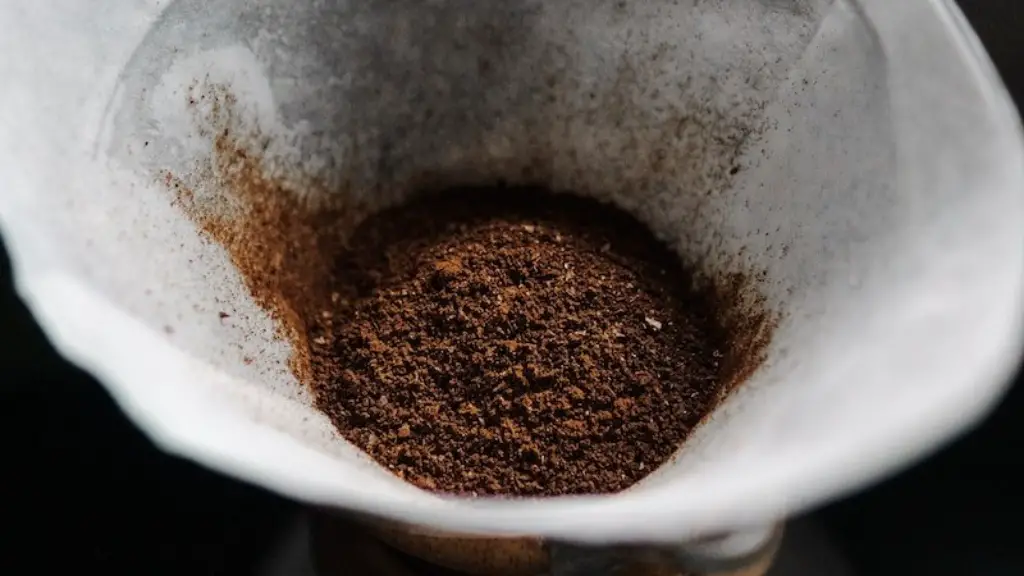Coffee has been a savior to many, providing an energy boost for those in need of a little extra vitality. It is no wonder that coffee consumption has increased over the years. But for women who are looking to get pregnant, is this habit a cause for concern? It is said that coffee consumption can hinder a woman’s fertility, but is this true? When trying to get pregnant, should you stop drinking coffee altogether?
Although some studies have indicated that coffee consumption may increase the risk of infertility, the overall research is still inconclusive. One comprehensive review of over 11,000 women concluded that there was no evidence of coffee consuming women being less likely to conceive. However, the same review also found that women who ingested large amounts of caffeine (over 600 mg per day) had small decreases in monthly fertility rates.
Various experts suggest that potential mothers-to-be should reduce their coffees intake while they are trying to conceive. A gynecologist at the University of Utah, Dr. Shannon Clark, recommends that women should limit their caffeine intake to no more than 200mg per day. This is the equivalent of two cups of coffee, which means most women will still be able to enjoy the occasional cup without any worry. However, if possible it is best to avoid coffee altogether, particularly when conception is the goal.
Yet, it must also be noted that there are other factors which may influence fertility, some of which are more important than others. As such, women should also take into account their overall diet and lifestyle before attempting to get pregnant. Factors such as stress, chronic illnesses and age are just some of the bigger considerations which may have a greater influence on fertility and should be addressed first.
When it comes to coffee, there are a few contributing factors that we need to consider. Firstly, caffeine is known to increase cortisol levels in the body and this also affects fertility. Secondly, there is the process of natural diuresis in which coffee leads to an increased rate of urination, which can also decrease fertility. Finally, the positive effects of coffee, such as increased alertness, can sometimes be counteracted by the negative effects such as bloating and anxiety.
At the end of the day, the decision to drink coffee or not is personal choice. It is important to weigh up the pros and cons to make an informed decision. Ultimately, if you are looking to get pregnant and believe that drinking coffee may be impacting this negatively, it is best to abstain from it while trying to conceive.
Coffee and Stress
Coffee may be a great way to perk yourself up if you are feeling tired, but too much of it can result in physical and emotional stress that can prevent conception. Studies have shown that excess coffee consumption can also increase anxiety and heighten stress levels, which can have a negative effect on fertility. This is because hormones are released when a person experiences stress, and this can impede upon the process of conception.
Coffee and Diet
The type of diet that a woman adheres to can also have a profound impact on her ability to get pregnant. This means that, if you are trying to conceive, it is important to look at the foods that you are eating and the amount of coffee that you are drinking. If coffee is your go-to beverage, you should consider swapping it for water or herbal tea, as excessive caffeine can diminish an already limited nutrient intake.
Coffee and Diet
The type of coffee that you choose to drink can also affect your fertility. For example, organic coffee has fewer chemical and pesticide residues than regular coffee, and this may be a better choice for women who are looking to get pregnant. Alternatively, decaffeinated coffee may be more suitable as it contains minimal amounts of caffeine and is thus less likely to impact fertility.
Coffee and Preconception Vitamins
Women who are looking to conceive also need to make sure that they are taking the right vitamins and minerals. Taking a pre-pregnancy multivitamin is essential, as are consuming food sources that contain the essential nutrients for fertility. Furthermore, since too much caffeine can decrease the absorption of essential vitamins and minerals, reducing the consumption of coffee will also help to ensure that your body is correctly absorbing the vitamins that it needs.


